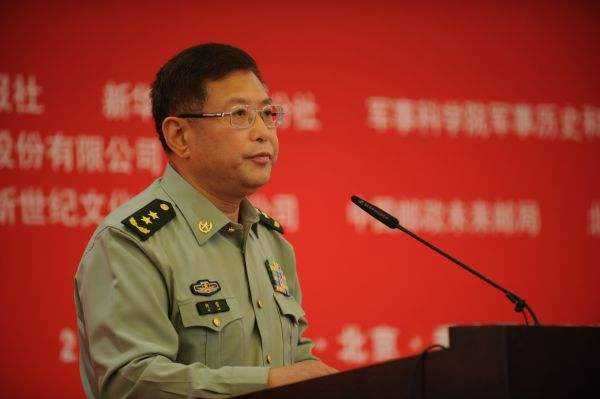

 |
| He Lei, head of the Chinese delegation to the Shangri-La Dialogue |
International rules ought to be recognized by all countries, as they represent all nations' interests, said He Lei, head of the Chinese delegation to the Shangri-La Dialogue, which was held in Singapore on June 3. He added that China is a follower and guardian of international and regional rules.
He, also the vice president of the PLA Academy of Military Science, made the remarks at a press conference after four defense ministers from the U.S., Japan, Australia and France delivered their respective speeches, all touching on international rules.
“China and the Chinese government protect and follow international and regional rules because the charter of the United Nations is the largest one among all international rules-based orders,” he explained.
U.S. Secretary of Defense Jim Mattis said at the first plenary session on June 3 that the U.S. "cannot accept Chinese actions that impinge on the interests of the international community, undermining the rules-based order that has benefited all countries represented here today, including and especially China.” Japanese Defense Minister Tomomi Inada said in her speech that China and North Korea should abide by international rules so as to protect regional peace and stability.
Australia’s Minister for Defense, Marise Payne, along with the country’s prime minister, Malcolm Turnbull, both mentioned rules in their speeches as well. Payne cited China as the greatest example of a country that has benefited from an international rules-based order, and recommended that China continue abiding by the rules with regards to the current situation in the South China Sea.
Turnbull praised the U.S.-anchored rules-based order as a remarkable system wherein nations big and small play by the rules and respect each other’s sovereignty.
He noted that the United Nations charter is a "mother law," and China was the first country to initiate and sign the charter.
China has so far signed more than 23,000 bilateral and 400 multilateral agreements, and participated in all UN commissions, He noted, adding that China abides by, supports and protects the international and regional rules-based order.
In addition, the head of the Chinese delegation discussed the free navigation component of the rules-based order, saying that close reconnaissance, such as military operations by fleets and aircraft in waters and airspace adjacent to Chinese islands, does not constitute free navigation. The Chinese government and people resolutely oppose such actions, he added.
 Fire brigade in Shanghai holds group wedding
Fire brigade in Shanghai holds group wedding Tourists enjoy ice sculptures in Datan Town, north China
Tourists enjoy ice sculptures in Datan Town, north China Sunset scenery of Dayan Pagoda in Xi'an
Sunset scenery of Dayan Pagoda in Xi'an Tourists have fun at scenic spot in Nanlong Town, NW China
Tourists have fun at scenic spot in Nanlong Town, NW China Harbin attracts tourists by making best use of ice in winter
Harbin attracts tourists by making best use of ice in winter In pics: FIS Alpine Ski Women's World Cup Slalom
In pics: FIS Alpine Ski Women's World Cup Slalom Black-necked cranes rest at reservoir in Lhunzhub County, Lhasa
Black-necked cranes rest at reservoir in Lhunzhub County, Lhasa China's FAST telescope will be available to foreign scientists in April
China's FAST telescope will be available to foreign scientists in April "She power" plays indispensable role in poverty alleviation
"She power" plays indispensable role in poverty alleviation Top 10 world news events of People's Daily in 2020
Top 10 world news events of People's Daily in 2020 Top 10 China news events of People's Daily in 2020
Top 10 China news events of People's Daily in 2020 Top 10 media buzzwords of 2020
Top 10 media buzzwords of 2020 Year-ender:10 major tourism stories of 2020
Year-ender:10 major tourism stories of 2020 No interference in Venezuelan issues
No interference in Venezuelan issues
 Biz prepares for trade spat
Biz prepares for trade spat
 Broadcasting Continent
Broadcasting Continent Australia wins Chinese CEOs as US loses
Australia wins Chinese CEOs as US loses